What To Do After A Car Accident in Wilmington, Delaware
- Home
- What To Do After A Car Accident in Wilmington, Delaware
The weather is lovely. You load up the car and go out on a family road trip. While approaching a four-way stop in a city, you glance in all four directions to make sure there are no obstructions in your path, then you proceed.
However, a vehicle comes out of nowhere. It may have been that you failed to see it, or that it was obscured from your line of sight. Maybe the vehicle did not stop when it was required to do so at the stop sign and went on, colliding with the front of your vehicle.
What steps should you take if you're in a car accident in Delaware?
Even though most individuals know what to do following a vehicle accident, it doesn’t hurt to review the basics again. This is what you should do in the event of an accident.
1. Stay at the scene
In the event of an accident, you must stay put. If the accident is severe and the other motorist sustains injuries but you do not, you have a moral obligation to help them.
If you are involved in an automobile accident and you leave the scene without sharing information or speaking to a police officer, you may lose your driving privileges even if no one was seriously wounded. Keep close to the accident location, but move your car to the shoulder if you can.
2. Call 911
Call 911 as you check on the well-being of other motorists and passengers at the accident scene. The following details should be provided to the operator:
- Your exact location
- The direction where you intend to go
- Any landmarks, such as nearby crossroads or mile signs, that might aid in pinpointing your exact position
If someone is hurt, please call for medical assistance. In the event that you need to file a liability claim in the future, calling 911 is a crucial first step since the operator will send police to the site and a police record will be required as evidence.
3. Do what you can to protect the scene
By increasing the visibility of the area, you can lessen the possibility of more mishaps. Make use of flares and keep your vehicle’s lights on. If it’s evening and your car’s lights aren’t working, use a flashlight to signal your location as you wait in your car or on the shoulder of the road.
4. Document the incident as thoroughly as possible
If the police do show up, be sure to give them a detailed account of what transpired. Don’t make something up.
On the other hand, even if you believe you contributed to the mishap in some way, you should not take responsibility for it. Tell them what took place. Don’t ever respond “no” to a police officer’s question about whether or not you’ve been harmed, even if you’re not sure. Just say you’re not sure if you’re harmed or not. It may take up to two days following a vehicle accident for any injuries, no matter how small, to become apparent.
5. Use the camera on your smartphone
Photograph everything, but especially the obvious signs of damage. Don’t just snap one picture; take a bunch. Take photos of your vehicle and the one being driven by the other person. Take pictures of your surroundings to record specifics like weather, landmarks, and car placement that you might forget later. Document any scuffs with photographs. Take photographs of any injuries you or your passengers sustain.
Don’t interfere with the police as they examine the collision, and snap photos only when it’s safe to do so. It is recommended that the automobiles involved in the collision stay where they are unless they are blocking traffic. Take images of their current location and then their new one if you have to move them.
6. Talk to possible witnesses
If the collision took place on a busy street or highway, it may be difficult to track down those who saw what happened. But, if there are still bystanders hanging around the area, you should respectfully request their contact information. If they decline participation, it’s polite to thank them and go on to the next individual if there is one.
7. Share data
In Delaware, everyone involved in an accident has an equal obligation to exchange contact details at the site. All of the following are components of that data:
- Your full name, mailing address, and phone number
- The number on your driver’s license
- Your license plate information
- The details of your insurance coverage
- You must also share these details with the police officer on the scene
8. Don’t forget to get the police report number
The officer who arrives at the scene of an accident will often provide you with a report number. If they don’t offer to leave you with one, be sure to ask for one before they go. The police record is a crucial part of any accident liability lawsuit, and you may use this number to get it in the future. Also, be sure to get the officer’s name so you may contact them directly if you have any further questions regarding the report you filed.
9. Contact your insurance provider
Notify your insurance provider as soon as you can after the incident. In most cases, insurance providers demand prompt notification of accidents. The claim number can be obtained by asking. Remember that the personal injury protection (PIP) clause of your Delaware insurance policy will pay for your medical expenses and lost income up to the limits of your policy.
10. Seek medical attention
The preceding actions may not have been possible in the immediate aftermath of a catastrophic vehicle accident in Delaware, since victims are often treated on the spot by emergency medical workers before being taken to the nearest local hospital. Someone close to you who can be there at the moment of the accident is the best person to rely on for support and assistance while you deal with the aftermath.
Whether you go to the emergency department or schedule an appointment with your regular doctor, you should get medical attention as quickly as possible after any accident, regardless of how severe the injuries may seem. Just say you had an auto accident and need their help. Even a small injury may become more serious in the days after the incident. Be sure to inform the doctor treating you if you experienced a brief loss of consciousness at the time of the accident.
It’s not always easy to spot injuries sustained in car crashes. Our customers typically report the worst discomfort a day or two after their car accident. The spinal cord is extremely vulnerable and can be severely damaged in even low-impact incidents. Concussions and closed head injuries are possible if you were unconscious or confused for any length of time after the impact. If untreated, this might result in alterations to one’s thinking and conduct.
Table of Contents
Legal provisions for automobile accidents
In the event of a car crash in the state of Delaware, you need to be aware of the applicable laws and have some level of familiarity with them. Ignoring them may result in legal action being taken against you, costly penalties, or the rejection of any liability lawsuit you may desire to pursue. Following a collision involving a motor vehicle in Delaware, the following steps should be taken to ensure compliance with all applicable laws.
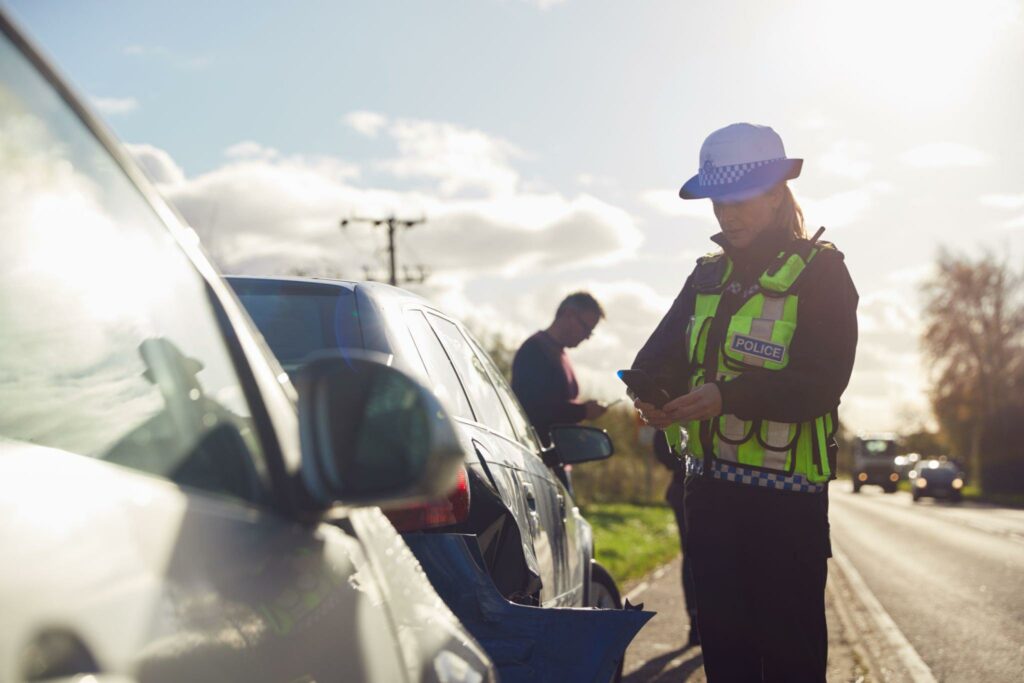
1. You are required to report any accident that occurs in the state of Delaware
Even if the only damage that occurred was to your vehicle, such as when it collided with a stationary object or even an animal like a deer, you might be subject to a fine if you did not report the accident. It is possible for you to be charged with a misdemeanor if you are involved in an accident that results in injury to another person but you did not report the incident.
It is possible for you to be charged with a felony if you fail to report an accident that results in the death of another driver or passenger in the vehicle. Every accident that takes place on a public roadway and causes more than $1500 worth of damage, as well as any accident that involves a person who is inebriated or under the influence of narcotics, are both required to be reported.
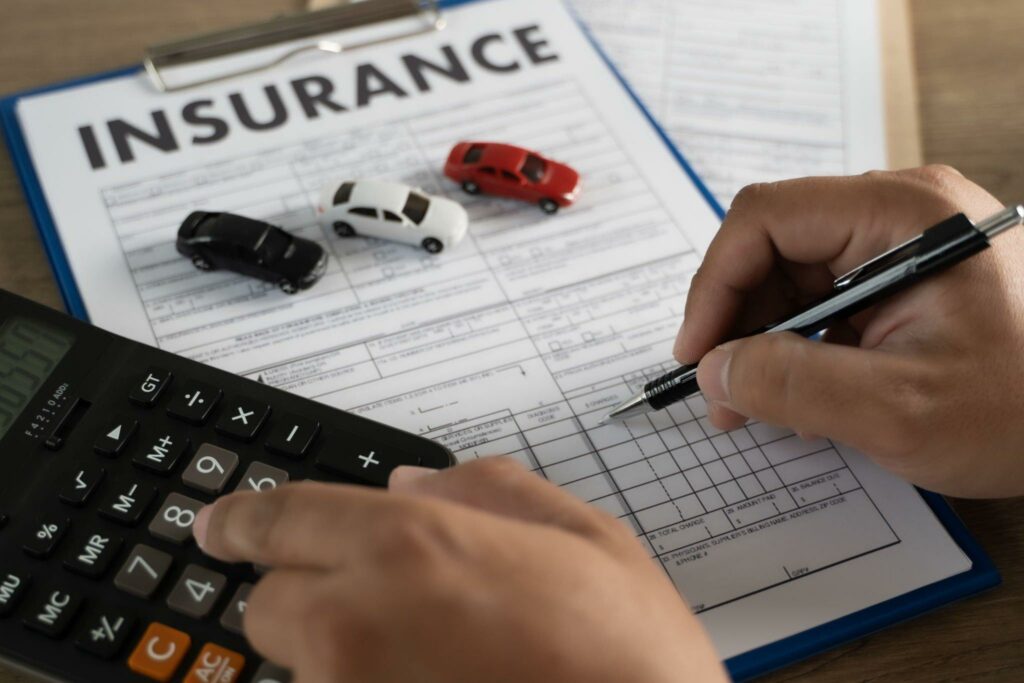
2. Drivers in the state of Delaware are required to have both liability and no-fault insurance
In the state of Delaware, drivers are obliged to have no-fault insurance, sometimes known as personal injury protection, or “PIP.” Your personal injury protection (PIP) will pay for your medical bills irrespective of who was at fault in the event. It does not compensate for any kind of agony or distress. This is what liability insurance is supposed to cover. Talking to an expert attorney will provide you with a more thorough explanation of the distinction between the two.

3. Prior to having a trial in the state of Delaware, all parties are required to participate in some form of alternative dispute resolution (ADR)
The parties involved in a car crash might use alternative dispute resolution (ADR) as a kind of mediation. In the event that the parties are able to establish a consensus, the arbitrator is required to inform the court within five days. In the event that the parties involved in the issue are unable to come to an agreement, the dispute will proceed to the trial stage.
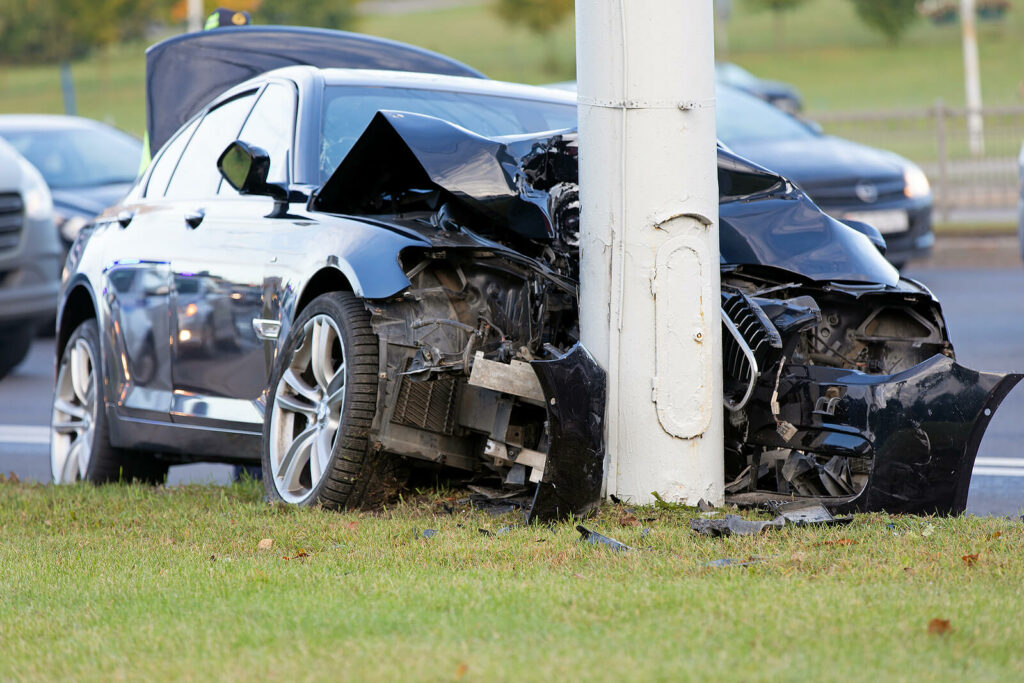
4. Adhere to the comparative fault negligent system of the state of Delaware
Even if you were partially to blame for the collision, you still have the right to sue the other motorist for damages under a legal doctrine known as comparative negligence. You are not allowed to initiate a lawsuit if you are more than 51 percent culpable for the incident. Any damages that are granted to you in a case will, however, be reduced by 20% if it is determined that you were liable for 20% of the accident that occurred. Hence, even if you are given $10,000, you will only receive $8,000 in cash.
The risks that come with not filing a police report
The decision to not file a police report comes with its own set of potential consequences. For instance, because there is no police report, there is no third-party account of what happened. It is possible that you will be held responsible for an accident that was not your doing. In the event that you have an injury, there is also the possibility that you will not be compensated by your insurance policy.
Even if you walk away from a vehicle accident appearing to be unharmed, you should still be aware that some injuries, such as those involving major soft tissue or the head, may not be immediately apparent. It’s possible that you’ll feel great immediately after the crash, but then you’ll start experiencing symptoms a few hours or days later. At that time, you would want assistance in paying for your medical costs, in which case you would require a claim on your insurance as well as a report from the police.
In conclusion, if you have been involved in a small automobile accident and have verbally agreed with the other motorist not to report it, you face the danger of being accused of being the one who caused a hit-and-run accident. If you do not report the collision, the other motorist may still go to the police and argue that you fled the scene of an accident, leaving you with the responsibility of clearing your reputation.
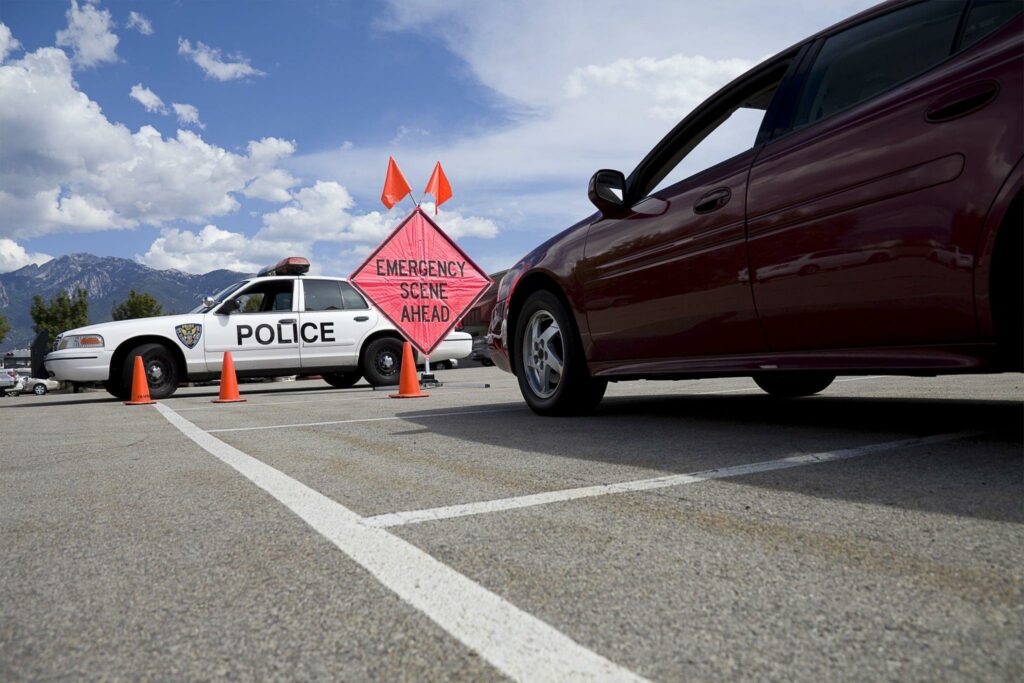
In the state of Delaware, how much time do I have to file a lawsuit after an automobile accident?
In contrast to several other jurisdictions, the statute of limitations for filing a lawsuit in Delaware for personal injury or property damage is just two years from the date of the accident. Some states start the clock on the two-year period from the time a person realizes that they have been injured, which in some cases can be several weeks or even months after the original accident. In these states, a person has two years from the time they realize they have been injured to file a personal injury claim.
Hence, in order for you to get compensation for any costs that you have spent, such as those related to medical treatments, the purchase of a new car, or for pain and suffering, your case must be filed within the allotted time frame of two years.
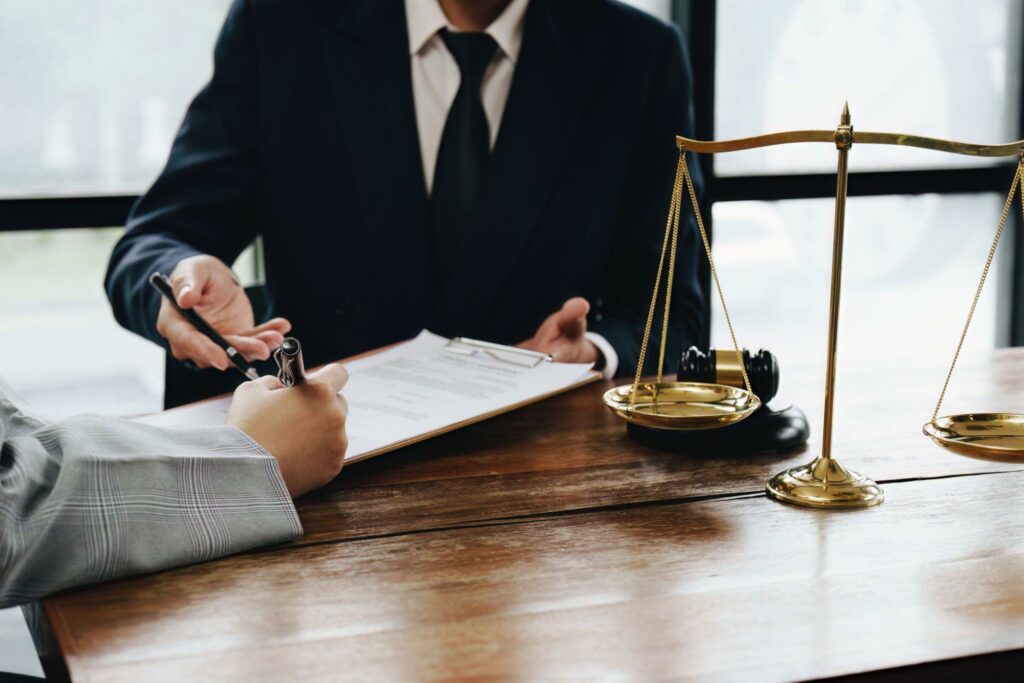
Should I get an attorney when in an automobile accident in Delaware?
Yes, without a doubt. When you have been involved in a vehicle accident, one of the most prudent things you can do is consider the possibility of filing a claim for financial compensation. This is due to the following reasons:
● Insurance companies have a wealth of expertise in the field of handling claims related to automotive collisions. They are aware of the areas of pressure to apply, the rebuttals to make, and the proposals to place on the table at the appropriate time that will cost you money while saving them money. If this is your first time being involved in a vehicle accident, you do not have any previous experience dealing with concerns of this nature. Auto accident lawyers with experience are familiar with how to respond to and counteract these strategies. That is one very compelling argument in favor of retaining legal counsel to assist you.
● It’s a complicated and difficult procedure. There are a lot of forms that need to be filled out, records that need to be obtained, and papers that need to be gathered. When it comes to compiling the necessary records, documents, receipts, and expenditure forms, having an experienced attorney that specializes in car accidents on your side will be of tremendous assistance. They will be aware of the proper time and location to initiate any legal action.
● You’re harmed. You have just been involved in an automobile crash. This does not happen on a regular basis. You run the risk of suffering severe injuries. Even if you only have a small injury, you could be concerned about how this will impact your employment or the way your family interacts with you. It’s possible that your doctor will advise you against participating in everyday activities. It is essential that you be able to devote as much of your time and energy as possible to the healing process. Your legal team will take up the slack and prepare your case, giving you the opportunity to focus on getting well.
● It is better to get things done sooner rather than later. When is it truly necessary for you to hire a lawyer? The most appropriate response is “as quickly as you can.” Keep in mind that the statute of limitations for filing a lawsuit in the state of Delaware for an accident involving a motor vehicle is two years. In the context of the law, two years may seem like an eternity, but in reality, it is a blink of an eye. If you are certain that you want to initiate a legal proceeding, or if you are seriously considering doing so, you should get in touch with a lawyer as soon as you can.
Get the legal assistance you need after an auto accident by contacting Hunt & Associates
If you are involved in a car crash, having
legal representation will help you piece together what actually took place.
An attorney has access to several
professionals, including detectives, medical experts, engineers, expert
witnesses, accident reconstruction experts, and other specialists who may
provide a more comprehensive account of the events that lead up to an accident.
In addition to this, a lawyer can investigate
the situation in order to find all of the responsible parties and give proof as
to who was to blame. In the event that an insurance company is behaving in bad
faith or attempting to make a lowball offer, attorneys have the expertise of
the insurance sector to combat these acts and guarantee that their clients
receive the compensation they are entitled to.
Speak with an attorney about your options if
you have been involved in an accident and believe that your insurance premiums
have been increased in a manner that is contrary to the law, or if you have any
other questions or concerns regarding insurance.
We have a legal staff that is both qualified
and competent, and they will work with you to ensure that you receive the
benefits to which you are entitled. If you have been involved in an auto
accident, we will do a comprehensive review of your circumstances and provide
legal counsel on what steps to follow after a car accident in the state of
Delaware.
When we work with a client, we do not view
them as merely another file; rather, we see them as unique persons who have
experienced pain that must be addressed. We are aware of how challenging it is
for you and your family to deal with the circumstances at hand, as well as how
vital it is to you that the matter is resolved as swiftly and equitably as
possible.
Table of Contents
Cities We Serve in New Jersey
Newark, NJ
Jersey City, NJ
Elizabeth, NJ
East Orange, NJ
Linden, NJ
New Brunswick, NJ
Mount Laurel, NJ
Sayreville, NJ
West Orange, NJ
South Plainfield, NJ
Bergenfield, NJ
Cresskill, NJ
Demarest, NJ
Rochelle Park, NJ
Hackensack, NJ
East Orange, NJ
Fort Lee, NJ
Guttenberg, NJ
Harrison, NJ
Irvington, NJ
North Bergen, NJ
Palisades Park, NJ
Paramus, NJ
Paterson, NJ
Teaneck, NJ
Tenafly, NJ
Union City, NJ
West New York, NJ
